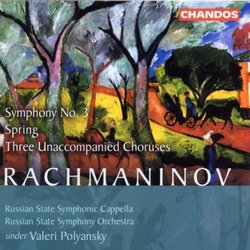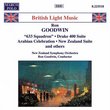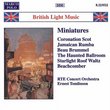| All Artists: Sergey Rachmaninov, Valery Polyansky, Russian State Symphony Orchestra Title: Sergey Rachmaninov: Symphony No. 3; Spring; Three Unaccompanied Choruses Members Wishing: 0 Total Copies: 0 Label: Chandos Release Date: 6/27/2000 Genres: Folk, Classical Styles: Opera & Classical Vocal, Historical Periods, Modern, 20th, & 21st Century, Symphonies Number of Discs: 1 SwapaCD Credits: 1 UPC: 095115980224 |
Search - Sergey Rachmaninov, Valery Polyansky, Russian State Symphony Orchestra :: Sergey Rachmaninov: Symphony No. 3; Spring; Three Unaccompanied Choruses
 | Sergey Rachmaninov, Valery Polyansky, Russian State Symphony Orchestra Sergey Rachmaninov: Symphony No. 3; Spring; Three Unaccompanied Choruses Genres: Folk, Classical |
Larger Image |
CD DetailsSimilar CDs
|
CD ReviewsSlava Rachmaninov! Slava Polyansky! Thomas F. Bertonneau | Oswego, NY United States | 10/03/2000 (5 out of 5 stars) "Not so long ago Sergei Rachmaninov appeared to the cognoscenti as passe; some of his music struck them, indeed, as embarrassing. In the Pelican symposium on "The Symphony," from the mid-1960s, no less an authority than Robert Simpson wrote of the Russian's Third (1936) that Rachmaninov appeared to have composed it "when [the] creative urge was at last leaving him." A "drift towards inflation," detectable in the Second Symphony (1907), vitiated its successor, Simpson argued, and he had little further to say about it. Attitudes have changed considerably since those days, and Rachmaninov's stature, particularly as a symphonist, has risen. One can now see Rachmaninov as an artist who, in fact, continued to develop throughout his life, and whose late work shows the conscious assimilation of distinctly modern elements, especially as regards orchestration. Valery Polyansky and the Russian State Symphony Orchestra have already weighed in with a sumptuous E-Minor Symphony (No. 2). Now, again courtesy of Chandos, they bring us one of the best readings of the A-Minor Symphony (No. 3) ever. Polyansky's phrasing is precise and well-calculated to support the architecture of each movement. The rapid progression of moods in the first two minutes of the First Movement, leading up to the glorious main theme (first pronounced by the cellos), telegraphs that this is going to be a rich and profoundly Russian reading of the score. The Chandos engineers bring out a wealth of marvelous detail. Polyanksy's reading also reminds us that, in this late entry in the composer's oeuvre, Rachmaninov's sense of motivic development reaches a peak. Simpson's objection that this is a symphony of languorous inflation simply will not pass Polyanksy's muster. The central Scherzo is brilliant; Polyanksy makes the fugato passages sound as integral to the argument as they could possibly be. The Finale (Allego) just about leaps out of the speakers. The range of color (with delicate additions from celesta and harp and glockenspiel) is stunning. High marks go to the RSSO's trumpets and horns. The CD includes the cantata "Vesnya" ("Spring") and three a capella choruses. This surpasses the previous top-contender, Mikhail Pletnev's reading (coupled with the Symphonic Dances) on DG with the Russian National Orchestra. Polyansky understands this score as well as the composer himself did; the new recording bears comparison with the composer's own reading, still available on RCA, where he leads the Philadelphia Orchestra. As my grandmother liked to say, "more power to him." To Mr. Polyansky, I mean." Very Good, Very Russian Thomas F. Bertonneau | 03/01/2004 (5 out of 5 stars) "I read some reviews on the net that criticized this CD. Especially preposterous (in retrospect) was the criticism that the performance of the symphony is not nuanced or sensitive. I found the performance of the symphony be extremely engaging and lyrical. It is definitely a very Russian performance. Granted, I have not heard any other recordings of the symphony (I have heard it live recently, however). But I continue to enjoy the recording of the symphony and of the "Spring" cantata immensely. The latter is very poetic surprise piece that does not require much sophistication from the listener."
|





